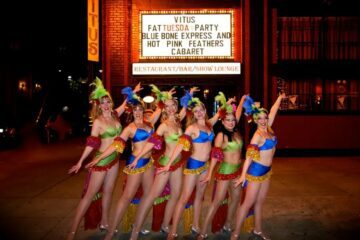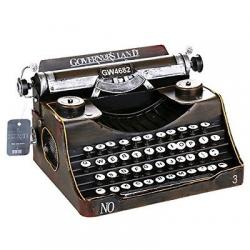Luna Malbroux Explains How To Be a White Man
By Jennifer Lewis

Luna Malbroux
How to Be a White Man is a new theatrical comedy starring Luna Malbroux premiering June 16th at 7:30 PM at PianoFight and running till July 1st. This satirical play actually gives audience members coupons for White Male Privilege (In case you’re already a white man, it’s a coupon to use the privilege, guilt free!). Malbroux and I began the writing process by combing her stand-up material, interviews from her Mapping Privilege project, and pages of notes that I took from our conversations. Once a working draft was in place, Malbroux commanded it with her voice, adding literal voices from her head as characters, and we finalized the script with the support of Faultline Theater . Malbroux and I recently sat down together to discuss the play and the process.

JL: When did you know How to Be a White Man was going to be a play?
LM: It has been a concept for a long time. I actually pitched it as a book last year and still working on the book. I was talking to Rose Oser and Cole Ferraiuolo from Faultline Theatre and they wanted to work with me and so I told them my concept and they said, Great! Let’s make a play. I’m very thankful to Faultline Theater for supporting emerging artists and new playwrights.
JL: When did you come up with its provocative title?
LM: Long ago I heard Mindy Kaling say that she carries herself with the entitlement of a white man and it was one of the most amazing things that I have ever heard. And there are all these t-shirts and memes that say, carry yourself like a mediocre white man and I’ve always wondered, what does that exactly mean? What does that entitlement look like? Isn’t entitlement something that everybody should have? You know? I mean the feeling like you deserve things in this world. The privilege to not be afraid to raise your voice and ask questions. How to Be a White Man is really a question of how do you navigate worlds that are not necessarily built for you–and that can be anything. More often than not, people experience a world that is telling you don’t belong, or that you should assimilate. The play raises the questions of how does one hear all those messages, and find your own way, without losing yourself.
JL: What do you hope the audience gets out of the play?
LM: I hope it opens up some dialogue and allows people to have conversations about race, sexuality, and privilege in a different way. More than just building empathy, you get to see stories from multiple people’s point of view in a way that is funny, not beaten over the head or lecturing you. My intention is to leave the audience with more questions than answers. Because I don’t have all the answers. (Laughs)
JL: How has it been writing and acting in these deeply personal scenes?
It’s actually been kind of scary (laughs). Because the play is so personal and I am putting my life out there in a way that is opening it up to criticism—and I fully show how flawed I am—it’s scary. But it’s really freeing to let it go. You know, look at it, face it, then let it go. But honestly, the play explores the fullness of what a person can be…you see the character’s relationships with men, with women, you see all of the characters joke about who has it worse. You get into those dynamics about what privilege looks like on a daily basis.
JL: A lot of your stand-up comedy is in the play. It also gives a snapshot of your life. You bring in the relationship with your girlfriend, Bonnie. I know she has read the play. You also write about your parents. Have they read it yet?
(Laughs) No. But my parents are excited about the play. There are characters based on my parents, but obviously, it’s an exaggeration. There’s nothing I have written that they would be shocked by. Overall, they would probably say, Yes, that’s us!
When I started doing stand-up, my Dad would always ask if I getting any material from them. They expected it and I think they were a little disappointed when it didn’t happen (laughs). They sort of wanted it in some way. It’s a weird thing that happens to people who are really close to me. At some point, they know that they might end up being a joke. Some people are hurt if they end up not being a joke.

You are in rehearsal right now. Is there anything that surprised you or that you learned about yourself by staring in your own play?
Not to give away any spoilers. It dabbles in Theatre of the Absurd. An actor said it best the other day in rehearsal, “Some of this is so real that it feels absurd.” That surprised me. But it’s coming from a real place and that’s what we did in the writing. This is an absurd real thing that happened. Even the idea that someone can sell white privilege, that it’s a tangible thing that you can buy is absurd! Or that you can go to a TedTalk and walk away with a new bottle of white privilege that you can drink. That is an absurd idea. Blending absurdity with real brought the humor out and made the whole thing playful and fun. I believe in immersive theater. I want to have a conversation with the audience. And that’s what we’re doing.
JL: Most people know you as a comedian, but you are also a writer and social activist, how did you bring your Mapping Privilege into the play?
LM: Mapping Privilege is an editorial series that I am doing with KQED where I am driving across the country, talking to people about race, religion, sexuality, region, gender- all aspects of identity. And by talking, I mean sitting across from someone, asking simple questions, and really listening to what they have to say. I usually start off with, how do you identify? A lot of the monologues and characters in the play are based on or a mix of real people that I interviewed. It’s very important as a writer to get as many different perspectives in your work and the best way to do that is sit down and really talk to people who are different from you.

JL: When I listened to your Mapping Privilege interviews, I was impressed by they way you connected with people, gave them space to tell their story, without reacting. We live in a reactionary society and I don’t think many people can talk about politics, race or gender and listen to someone who doesn’t share the same viewpoint as them. That gets me on the subject of White Fragility, are you nervous about offending white males?
LM: Sometimes I’m afraid of how people will take it. There are a lot of very angry white men who are easily offended and want to call it white genocide and put me in a social justice warrior category, but that doesn’t really scare me because you should never be afraid to tell your story. At the same time we live in a world where white supremacists are feeling emboldened right now and people are being attacked for telling their stories and being who they really are. So I’m balancing both of those things.
JL: People are probably going to want to label the play. So you might as well beat them to the punch.
LM: Before anything else I would call it a satirical play. I’m a feminist so by extension of me, it is a feminist play. I’m Black so the play is about an aspect of Black culture, and I’m queer so it’s a queer play. Maybe more importantly- I’m a comedian so it’s going to be funny, Goddamn it! It’s gonna be a fun, good ol’time. Regardless of where you are in your journey, there are things in the play that may be affirming, like oh yeah! I feel that way, too. Or there may be new and enlightening things. It’s just depends on where you are in your journey.
Jennifer Lewis is the co-writer of How To Be a White Man and the editor of Red Light Lit. Her fiction has been published in in Cosmonaut’s Avenue (upcoming), Eleven Eleven, Fourteen Hills Press, Midnight Breakfast, Transfer Magazine, and Sparkle and Blink.








